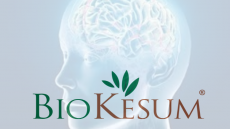Holistic microbiome: South Korea’s BIFIDO to beef up R&D on cognitive and oral health

The company, which specialises in probiotic supplements, skincare, and personal care consumer products marketed under the brand BIFIDOLAB (益蓓莱) in China, revealed the above in an interview with NutraIngredients-Asia at the Healthplex Expo held in Shanghai.
While probiotics targeted at improving gut and immune health are its bestsellers, the firm is looking to beef up its research and products for cognitive and oral health probiotics.
From anxiety, depression, to ageing-related conditions such as mild cognitive impairment (MCI) and Alzheimer’s Disease are examples which the firm would focus on, Jason Kim, managing director of the sales division said.
Part of the reason is to address mental issues that have worsen during COVID-19.
“Whether it’s South Korea or China, the COVID-19 pandemic has heightened feelings of stress and anxiety in people and people are paying more attention to mental health, which is why we are researching more on anxiety and stress,” said Kim.
“Conditions such as MCI and AD are more related to the middle-aged and elderly population, but we are also going to focus on depression and autism. This is because we are seeing more cases of autism, as well as depression, be it in school-going students or the working adults,” sales manager Winnie Gui added.
Most of BIFIDOLAB’s health supplements contain Bifidobacterium bifidum BGN4, Bifidobacterium longum BORI, and Bifidobacterium lactis AD011, which are all isolated from the gut of healthy Korean babies.
So far, the firm has conducted animal studies which showed that supplementation of both probiotic strains could increase the expression of brain-derived neurotropic factor (BDNF) and alleviate neuroinflammatory response.
A secretory growth factor, BDNF supports the survival of existing brain neurons and may slow down neurodegeneration.
In fact, the firm is aspiring to become a total microbiome solutions firm that addresses the four key microbiome areas, namely gut, oral, skin, and urinary tract microbiome.
“Gut health is the core area for us. However, there is new evidence showing the importance of the microbiome in different parts of the body.
“The four biggest microbiome areas for the human body are oral microbiome, urinary tract microbiome, skin, and the gut microbiome.
“We have already accumulated technical expertise in gut health. Since there is now market demand for oral health, this is going to be one of the areas that we will take note of, as well as skin and urinary tract microbiome…We have expanded into each of these areas, because we want to develop holistic microbiome solutions,” said Kim.
Gui added that the firm has proceeded to conduct clinical trials having completed pre-clinical studies on the effects of Lactobacillus gasseri HHuMIN D and Lactobacillus fermentum OK on gum disease and bad breath or halitosis.
“We isolated the strains from the saliva of healthy children, meaning there is no decay or oral health issues detected in them. These strains work by ‘sticking’ itself to the gum to eliminate pathogen. The longer the beneficial bacteria is present inside the oral cavity, the better it is,” said Gui.
“Different probiotic strains will be used for products of different functions. Although we already have three core strains, we are also studying the benefits of new strains,” said Kim.
Differences in Korean and Chinese market
The probiotics market in South Korea is more mature and segmented as compared to the one in China, said Kim.
He pointed out that the Korean consumers have been taking probiotics for uses beyond gut health, with weight management, blood sugar, blood pressure management, and cognitive health as the common reasons in recent years.
In China, the company’s bestsellers are products for gut and immune health, which are mainly distributed via mother-and-baby stores as well as hospitals.
The firm also focuses on finished product sales in South East Asia, Hong Kong and Taiwan. It has recently begun exports to Saudi Arabia and has set sights on the other Middle Eastern markets, Russia, as well as South Africa.
Elsewhere in the US and Europe, the company’s strategy is to grow its probiotic ingredient sales.


















